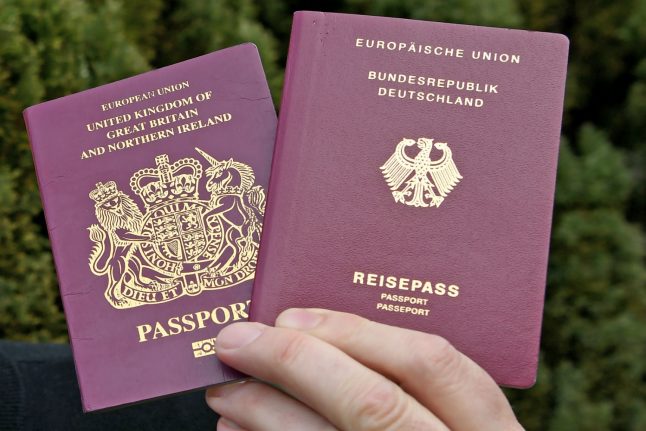The UK Government on Monday launched a major information campaign urging UK nationals living in and travelling to the EU to take steps to get ready for Brexit at the end of next month.
The campaign aims to inform more than a million UK nationals living in the EU – including over 117,225 Britons in Germany – about specific actions they need to take to secure their rights and services in their host country, including information on residency, healthcare, driving licences and passports.
It will also encourage people travelling to the EU to make all necessary preparations by checking passports, buying travel insurance and checking driving licenses and pet passports.
The campaign will use multiple channels – from Facebook posts to billboard posters in towns and cities across Europe – urging people to take action ahead of the October 31st deadline.
It comes even though negotiations are continuing over Brexit and no deal has been reached yet.
Regardless of what happens, Prime Minister Boris Johnson has said the UK will leave the EU at the end of October.
This is what Brits have been urged to do in Germany:
– Apply for a residency permit through your local Ausländerbehörde (immigration or foreigners office).
– Register for healthcare in Germany.
– Exchange your UK driving licence for a German one
– Check your passport is valid for travel. (If there's a no-deal Brexit, Brits must have at least six months left on an adult or child passport to travel to most countries in Europe).
There is also some other actions that Britons can take, such as getting qualifications recognized and applying for citizenship.
CHECK OUT: The ultimate Brexit checklist for Brits in Germany
Last month the British Embassy in Germany urged Britons to seriously prepare for the possibility of a no-deal.
As The Local has reported, Germany has given verbal reassurances that no British person will be forced to leave Germany as a result of Brexit.
A new draft law – called the Brexit-Aufenthalts-Überleitungsgesetz (Brexit Residence Transition Act) – went a step further to provide reassurances to British nationals who have set up their lives in the Bundesrepublik.
It is meant to guarantee that all British people and their family members will receive residence permits if the UK crashes out of the EU without a deal. However, the law hasn't been passed yet.
In the latest press release issued by the British Embassy in Germany, UK Foreign Secretary Dominic Raab said: “We are stepping up efforts to ensure Britons abroad are prepared for Brexit on October 31st.
“This campaign provides practical advice to the more than one million British people living in the EU, as well as British tourists and business travellers.”
The UK government recently announced up to £3 million in grant funding for charities and other voluntary organizations who can inform UK nationals about the need to register or apply for residency and to support them as they complete their applications.
The government also allocated an extra £300,000 to British Embassies and consulates across the EU to engage with UK nationals who may be more difficult to reach, such as people with disabilities, those living in remote areas or people who might need extra help to complete any paperwork in preparation for Brexit.
How are British people in Germany dealing with Brexit?
The Local has been reporting how Brits have been applying for residence permits from their local Ausländerbehörde (immigration office) and the difficulties they face due to the different processes across Germany's 16 states.
We've also reported on possible healthcare restrictions and how Brits are dealing with the constant uncertainty.
We also exclusively revealed that 8,000 Brits in Berlin still hadn't applied for a residency permit ahead of Brexit, even though the registering process opened up in the capital in January.
For details on what kind of residence permits are being given out to British people in Germany, check out our story here.



 Please whitelist us to continue reading.
Please whitelist us to continue reading.
Member comments